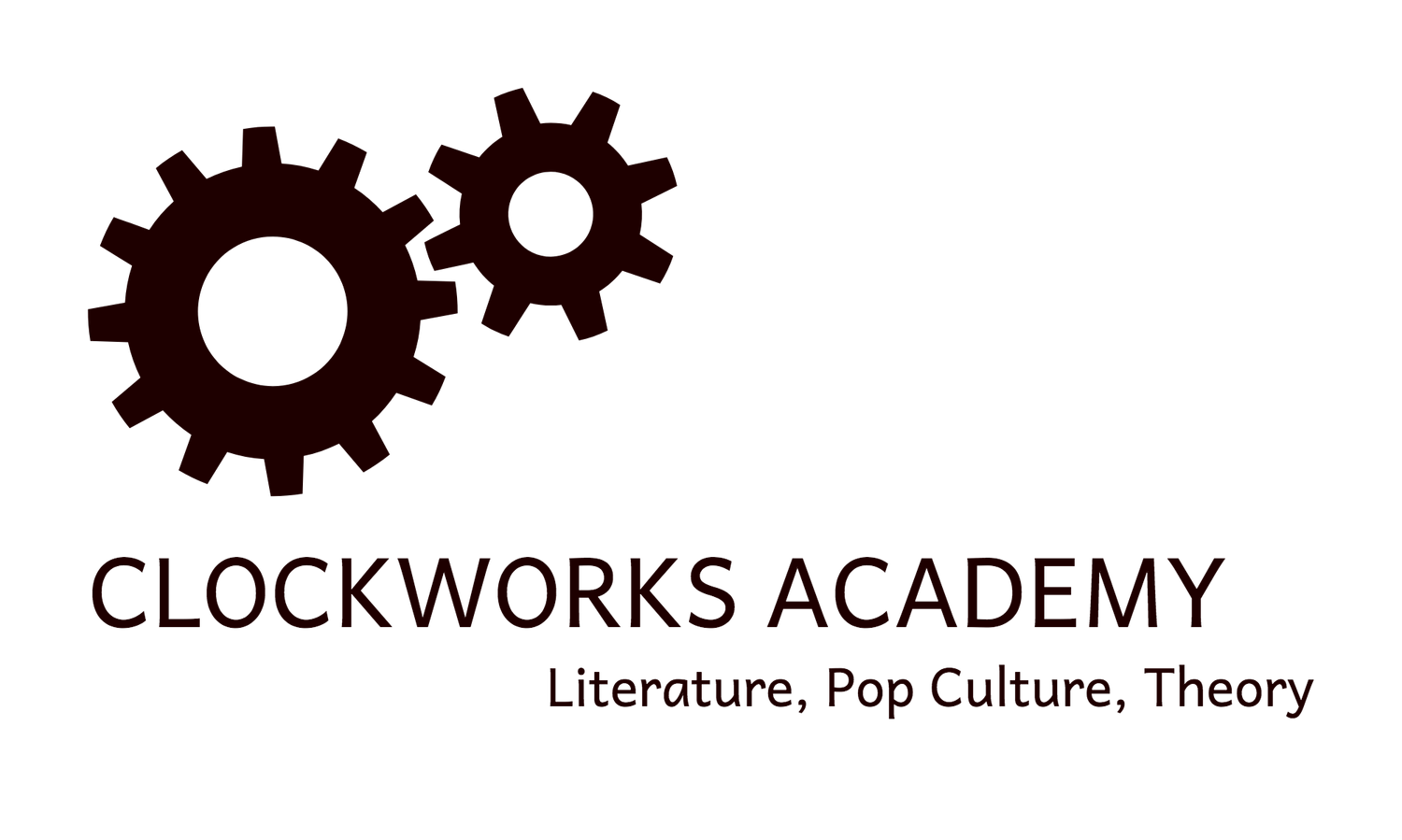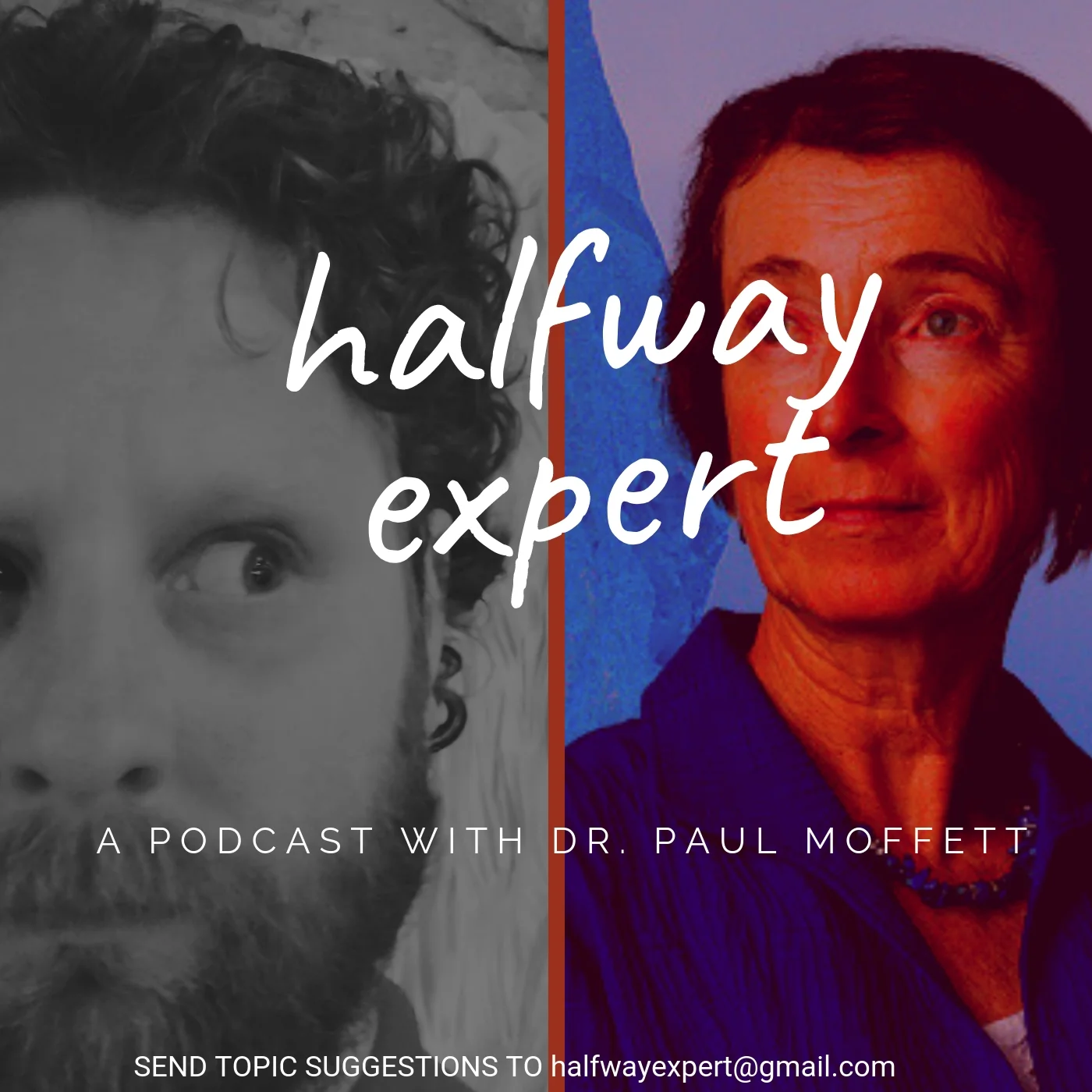Your Custom Text Here
Sustainability Science Notes and Sources
Paul’s Preparation Bibliography
Basshuysen, Philippe van & Brandstedt, Eric (2018). Comment on 'The climate mitigation gap: education and government recommendations miss the most effective individual actions.’ Environmental Research Letters, 13(4) doi:10.1088/1748-9326
IPCC 5th Assessment. https://www.ipcc.ch/
IPCC. Summary for Policymakers of IPCC Special Report on Global Warming of 1.5°C approved by governments: https://www.ipcc.ch/2018/10/08/summary-for-policymakers-of-ipcc-special-report-on-global-warming-of-1-5c-approved-by-governments/
Khagram, Sanjeev, Kimberly A. Nicholas, Dena Macmynowski Bever, Justin Warren, Elizabeth H. Richards, Kirsten Oleson, Justin Kitzes, et al. 2010. “Thinking about Knowing: Conceptual Foundations for Interdisciplinary Environmental Research.” Environmental Conservation 37 (4). Cambridge University Press: 388–97. doi:10.1017/S0376892910000809.
Nicholas, Kimberly. Global change in local places: Climate change and the future of the wine industry in Sonoma and Napa, California. Stanford University, ProQuest Dissertations Publishing, 2009. Credited and searchable as Cahill, Kimberly Nicholas.
Nicholas, Kimberly. A Taste of the Future: Wine in a Changing Climate: https://youtu.be/83IBqKkMNlo
Nicholas, Kimberly. China, UK, and US at centre of global ”land grabbing” trade: https://youtu.be/XsgvBafVxM0
Nicholas, Kimberly. Grand Opening of the Sustainability Week: https://youtu.be/QkZ7Tr22Rzw
Nicholas, Kimberly. How we solved climate change : A retrospective from 2050: https://www.youtube.com/watch?v=OBXv1_2cqV8
Nicholas, Kimberly. We Can Fix It World Cafe: http://www.kimnicholas.com/we-can-fix-it-world-cafe.html
The Global Carbon Project. https://www.globalcarbonproject.org/index.htm
Wynes, S., & Nicholas, K. A. (2018). Reply to Second comment on 'The climate mitigation gap: Education and government recommendations miss the most effective individual actions'. Environmental Research Letters, 13(6). doi:10.1088/1748-9326/aac9cf
Wynes, S., & Nicholas, K. A. (2018). Reply to Second comment on 'The climate mitigation gap: Education and government recommendations miss the most effective individual actions'. Environmental Research Letters, 13(6). doi:10.1088/1748-9326/aac9cf
Wynes, Seth, Kimberly A Nicholas, Jiaying Zhao, and Simon D Donner. 2018. “Measuring what works: Quantifying greenhouse gas emission reductions of behavioural interventions to reduce driving, meat consumption, and household energy use.” Environmental Research Letters 13 (11): https://doi.org/10.1088/1748-9326/aae5d7
Plus Wikipedia for terms I didn’t understand.
Kim’s Suggested Reading List
Kim directed me to this reading list of books on climate change: https://www.thereadinglists.com/best-books-on-climate-change/
Sustainability Science with Dr. Kimberly Nicholas
On this episode of Halfway Expert I talk to sustainability scientist Kim Nicholas. We talk about what sustainability science is, solution-oriented scholarship, wine, how to fix the world, and more!
On this episode I talk to sustainability scientist Kim Nicholas. I've spent exactly one week studying sustainability science, and I'm ready to act like I'm the expert and for Kim to correct me.
We talk about what sustainability science is, solution-oriented scholarship, wine, how to fix the world, and more!
You can find Kim Nicholas online at www.kimnicholas.com
You can follow Kim Nicholas on twitter at twitter.com/KA_Nicholas
You can find Halfway Expert online at clockworksacademy.com/halfwayexpert
You can follow Halfway Expert on twitter at twitter.com/halfexpert
You can email Halfway Expert at halfwayexpert@gmail.com
If you like this show or if you would like me to keep making it, please support me on Patreon at www.patreon.com/clockworkscast
I have a bibliography of the books and articles I consulted during my one week of studying, and Kim Nicholas has a list of recommended further reading for sustainability science. You'll be able to find both here.
I am always on the lookout for new topics to discuss and new experts to discuss them with. If you'd like to suggest a topic or an expert, or if you are an expert and you'd like to talk about your discipline with me, please contact me!
The Halfway Expert theme music was written by Paul Moffett. All rights reserved.
Arctic Climatology Notes and Sources
Paul’s Preparation Bibliography
(2016). atmospheric chemistry. In Rennie, R., & Law, J. (Eds.), A Dictionary of Chemistry. : Oxford University Press, http://www.oxfordreference.com/view/10.1093/acref/9780198722823.001.0001/acref-9780198722823-e-4908.
Francis, Jennifer. New England Aquarium, 10/19/17: Crazy Weather and the Arctic Meltdown, https://www.youtube.com/watch?v=wtmuBoolHQg
Hess, S., & Hall. (1960). Introduction to Theoretical Meteorology. Physics Today, 13(10), 56.
J. T. Overpeck,et al. Arctic System on Trajectory to New, Seasonally Ice-Free State, Eos, Vol 86, No. 34, 23 August 2005 https://marine.rutgers.edu/pubs/private/OverpecketalEOS05.pdf
Jacob, D. J. (1999). Introduction to atmospheric chemistry. Princeton, New Jersey: Princeton University Press.
Liu, J., Z. Chen, J. Francis, M. Song, T. Mote, and Y. Hu, 2016: Has Arctic Sea Ice Loss Contributed to Increased Surface Melting of the Greenland Ice Sheet?. J. Climate,29, 3373–3386, https://doi.org/10.1175/JCLI-D-15-0391.1
Matthews, J. (Ed.) (2014). Encyclopedia of environmental change (Vols. 1-3). Thousand Oaks,, CA: SAGE Publications, Ltd. doi: 10.4135/9781446247501
National Research Council. 2014. The Arctic in the Anthropocene: Emerging Research Questions. Washington, DC: The National Academies Press. doi: 10.17226/18726.
Seinfeld, John H. & Spyros N. Pandis. Atmospheric Chemistry and Physics: From Air Pollution to Climate Change. Wiley, 2006.
Tang, Q., Zhang, X., & Francis, J. A. (2013). Extreme summer weather in northern mid-latitudes linked to a vanishing cryosphere. Nature Climate Change, 4, 45. Retrieved from https://doi.org/10.1038/nclimate2065
Vaideanu, P., Dima, M. & Voiculescu, M. Theor Appl Climatol (2018) 134: 1245. https://doi-org.qe2a-proxy.mun.ca/10.1007/s00704-017-2330-3
Wiese, Chuck, A Warming Arctic Would Not Cause Increased Severe Weather or Temperature Extremes. Ed Berry.com https://edberry.com/blog/climate-physics/meteorology/a-warming-arctic-would-not-cause-increased-severe-weather-or-temperature-extremes
Plus Wikipedia for terms I didn’t understand.
Jennifer’s Suggested Five (or so) Texts
Francis, J.A., Clarity and clouds: Progress in understanding Arctic influences on mid-latitude weather. A "Frostbites" essay in the 2018 Arctic Report Card, NOAA Arctic Program.
Vavrus, S.J., 2018: The influence of Arctic amplification on mid-latitude weather and climate. Curr. Clim. Change Rep., doi: 1.1007/s40641-018-0105-2.
Francis, J.A., 2017: Why are Arctic linkages to extreme weather still up in the air? Bull. Amer. Meteoro. Soc., 98, 2551–2557.
Francis, J.A., 2018: Scientific American, April 2018, Vol. 318, No. 4: Meltdown https://www.scientificamerican.com/article/the-arctic-is-breaking-climate-records-altering-weather-worldwide/
Arctic Climatology with Dr. Jennifer Francis
On this episode of Halfway Expert I talk to arctic climatologist Dr. Jennifer Francis. We talk about what climatology is and how it works, the arctic, the jetstream, climate change denial, and more!
On this episode of Halfway Expert I talk to arctic climatologist Dr. Jennifer Francis. I've spent exactly one week studying climatology in general and Jennifer's specialties in particular, and I'm ready to act like I'm the expert and for Jennifer to correct me.
We talk about what climatology is and how it works, the arctic, the jetstream, climate change denial, and more!
You can find Jennifer Francis online at www.jenniferafrancis.com
You can follow Halfway Expert on twitter at twitter.com/halfexpert
You can email Halfway Expert at halfwayexpert@gmail.com
If you like this show or if you would like me to keep making it, please support me on Patreon at www.patreon.com/clockworkscast
I have a bibliography of the books and articles I consulted during my one week of studying, and Jennifer has made a list of recommended texts within her discipline. You can find both here.
I am always on the lookout for new topics to discuss and new experts to discuss them with. If you'd like to suggest a topic or an expert, or if you are an expert and you'd like to talk about your discipline with me, please contact me!
Hydrology Notes and Sources
Paul’s Preparation Bibliography
Anderson, M., & Burt, T. (1985). Hydrological forecasting (Landscape systems). Chichester: Wiley.
Arnal, Louise, et al. (2017). An efficient approach for estimating streamflow forecast skill elasticity. Journal of Hydrometeorology 18(6). 1715–1729. doi:10.1175/JHM-D-16-0259.1
Arnal, Louise, et al. (2018). Low river flow signal during Europe’s dry summer. ECMWF Newsletter 157. Retrieved from https://www.ecmwf.int/en/newsletter/157/news/low-river-flow-signal-during-europes-dry-summer
Arnal, Louise, et al. (2018). Skillful seasonal forecasts of streamflow over Europe? Hydrology and Earth System Sciences, 22. 2057–2072. doi:10.5194/hess-22-2057-2018
Emerton, Rebecca et al. (2018). Developing a global operational seasonal hydro-meteorological forecasting system: GloFAS-Seasonal v1.0. Geoscientific Model Development, 11. 3327-3346. doi:10.5194/gmd-11-3327-2018.
Neumann et al. (2018). The 2013/14 Thames basin floods: do improved meteorological forecasts lead to more skillful hydrological forecasts at seasonal time scales? Journal of Hydrometeorology, 19(6), 1059–1075. doi:10.1175/JHM-D-17-0182.1
Quinn, Nevil, et. al. (2018). Invigorating hydrological research through journal publications. Journal of Hydrometeorology, 19(11). 1713–1719. doi: 10.1175/JHM-D-18-0208.1
Ramos, Maria-Helena and Louise Arnal. (2018). Can hydrological forecasting contribute to science & art projects? HEPEX: A Global Community In Hydrological Ensemble Prediction. https://hepex.irstea.fr/science-and-art/
Riggs, H. C. (1985) Streamflow Characteristics. Amsterdam: Elsevier.
Sene K. (2010) Hydrometeorology. Springer, Dordrecht. doi:10.1007/978-90-481-3403-8_3
Viessman, Warren. et al. (2003). Introduction to Hydrology. New York: Intext.
Wang, Wen. (2006). Stochasticity, Nonlinearity And Forecasting Of Streamflow Processes. Technische Universiteit Delft.
Plus Wikipedia to define terms I was unfamiliar with.
Louise’s Suggested Five (or so) Texts
*Introduction to global hydrology: Bierkens, M.F., 2015. Global hydrology 2015: State, trends, and directions. Water Resources Research, 51(7), pp.4923-4947. https://agupubs.onlinelibrary.wiley.com/doi/epdf/10.1002/2015WR017173
*Introduction to operational river forecasting: Pagano, T.C., Wood, A.W., Ramos, M.H., Cloke, H.L., Pappenberger, F., Clark, M.P., Cranston, M., Kavetski, D., Mathevet, T., Sorooshian, S. and Verkade, J.S., 2014. Challenges of operational river forecasting. Journal of Hydrometeorology, 15(4), pp.1692-1707. https://journals.ametsoc.org/doi/pdf/10.1175/JHM-D-13-0188.1
*Introduction to ensemble flood forecasting: Cloke, H.L. and Pappenberger, F., 2009. Ensemble flood forecasting: A review. Journal of Hydrology, 375(3-4), pp.613-626. https://ac.els-cdn.com/S0022169409003291/1-s2.0-S0022169409003291-main.pdf?_tid=a9f10761-f95d-4932-bd08-0923cdd14c24&acdnat=1545921083_e9d3a09d4e57bc3212272b8caceb4fd9
*Introduction to seasonal streamflow forecasting: Yuan, X., Wood, E.F. and Ma, Z., 2015. A review on climate‐model‐based seasonal hydrologic forecasting: physical understanding and system development. Wiley Interdisciplinary Reviews: Water, 2(5), pp.523-536. https://onlinelibrary.wiley.com/doi/epdf/10.1002/wat2.1088
*This is the blog of a global community (HEPEX) doing ensemble hydrometeorological forecasting, of which I am part. They regularly publish scientific posts that give interesting overviews for a range of topics: https://hepex.irstea.fr/
*And for those interested in SciArt: https://www.sciartmagazine.com/
Hydrology with Louise Arnal
On this episode of Halfway Expert I talk to hydrometeorologist Louise Arnal. We talk about what hydrology is and how it works, seasonal streamflow forecasting, floods, SciArt, and more!
On this episode of Halfway Expert I talk to hydrometeorologist Louise Arnal. I've spent exactly one week studying hydrology in general and Louise's specialties in particular, and I'm ready to act like I'm the expert and for Louise to correct me.
We talk about what hydrology is and how it works, seasonal streamflow forecasting, floods, SciArt, and more!
You can find Louise Arnal online at sciartfloods.wordpress.com
You can follow Louise Arnal on twitter at twitter.com/ArnalLouise
You can follow Halfway Expert on twitter at twitter.com/halfexpert
You can email Halfway Expert at halfwayexpert@gmail.com
If you like this show or if you would like me to keep making it, please support me on Patreon at www.patreon.com/clockworkscast
I have a bibliography of the books and articles I consulted during my one week of studying, and Louise has made a list of five recommended texts within her discipline. You can find both here.
I am always on the lookout for new topics to discuss and new experts to discuss them with. If you'd like to suggest a topic or an expert, or if you are an expert and you'd like to talk about your discipline with me, please contact me!
The Halfway Expert theme music was written by Paul Moffett. All rights reserved.



